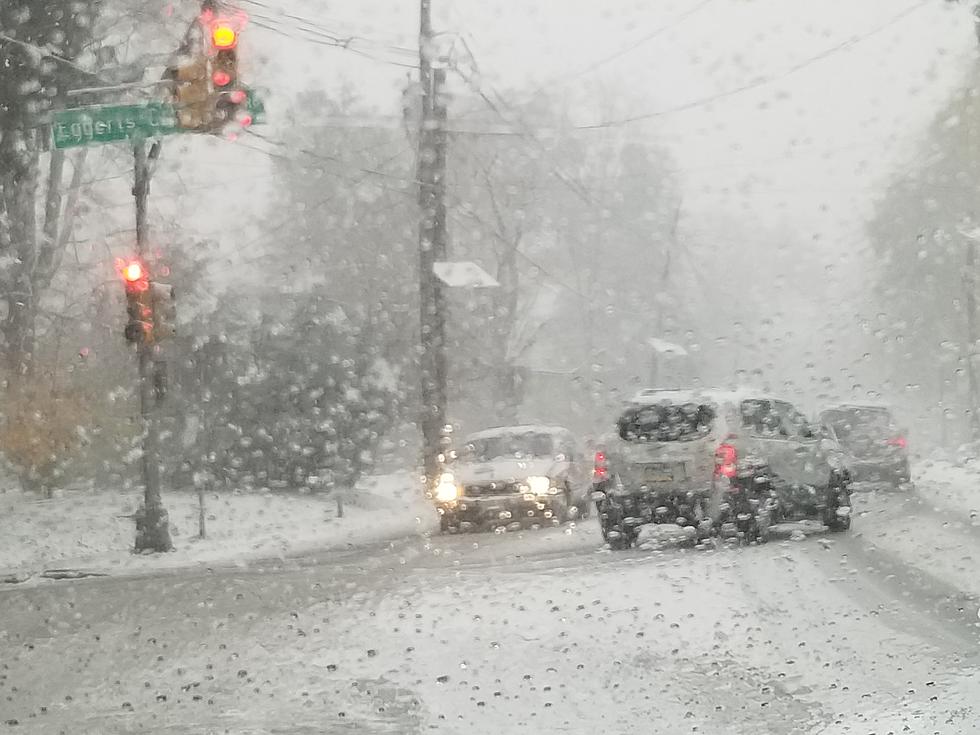
Tips to Survive the Cold Weather
As the cold weather continues in New Jersey, The Christie Administration is offering a number of tips to stay safe during the frigid temperatures.
"Exposure to extremely cold temperatures--even for a short time-can cause serious medical conditions," said Department of Health Commissioner Mary O'Dowd. "Dressing warmly and preparing emergency kits for your home and car are the best ways to stay healthy and avoid injury during extreme cold weather. In addition, check on elderly neighbors and relatives during this time to make sure their homes are properly heated."
To avoid cold-related illness and injury:
• Dress in layers while outdoors and remember to wear a hat to help retain body heat. If you get wet, either from heavy sweating while working or from rain or snow, change into dry clothes as soon as possible
• Eat well and drink adequate fluids during periods of cold stress. Avoid drinking alcohol since it can accelerate the lost of body heat
• Many cold-weather injuries result from falls on ice-covered sidewalks and other surfaces around the home. Use rock salt or other chemical de-icing compound to keep walkways, steps, driveways and porches as ice-free as possible
• If you have heart disease or high blood pressure, follow your doctor's advice about shoveling snow or performing other hard work in the cold
• When using a snow blower, read the owners' manual and follow all safety guidelines
• If you will be outdoors in the sun for an extended period, remember to use sunscreen and sunglasses, particularly if you are at higher altitudes
• Stock your car with emergency gear, such as cell phone, jumper cables, flashlight, sand or kitty litter for extra traction, ice scraper and small shovel, and flares and other warning devices. For long car trips, carry food, water, extra blankets and required medications
To stay safe indoors, residents should make sure heating systems are working properly. It is a good idea to have heating systems inspected each year. Tenants and homeowners with heating issues need to call their landlord and/or public utility for assistance. Check with your local municipality to see if they are offering warming centers.
If you plan to use a wood stove, fireplace, or space heater, be extremely careful. Follow the manufacturer's instructions and remember these safety tips:
• Use fireplace, wood stoves, or other combustion heaters only if they are properly vented to the outside and do not leak flue gas into the indoor air space
• Do not burn paper in a fireplace
• Ensure adequate ventilation if you must use a kerosene heater
• Use only the type of fuel your heater is designed to use-don't substitute
• Do not place a space heater within 3 feet of anything that may catch on fire, such as drapes, furniture, or bedding, and never cover your space heater
• Never place a space heater on top of furniture or near water
• Never leave children unattended near a space heater
• Make sure that the cord of an electric space heater is not a tripping hazard but do not run the cord under carpets or rugs
• Avoid using extension cords to plug in your space heater
• If your space heater has a damaged electrical cord or produces sparks, do not use it.
• Store a multipurpose, dry-chemical fire extinguisher near the area to be heated
• Protect yourself from carbon monoxide (CO) poisoning by installing a battery-operated CO detector and never using generators, grills, camp stoves, or similar devices indoors
The most serious cold-related illness is hypothermia, a drop of normal body temperature from 98.6 degrees to 95 or lower that requires emergency medical care. It can be especially dangerous for the very young and older adults and individuals with chronic medical conditions.
At the earliest stages of hypothermia, violent shivering is the most noticeable symptom. As body temperature continues to drop, symptoms will change. Shivering decreases and stops; speech is distorted or slurred; behavior is irrational; drowsiness or numbness occurs; pulse weakens and there is shortness of breath and unconsciousness.
Hypothermia can be fatal if not treated. If you notice signs of hypothermia in someone, seek medical attention immediately. While waiting for assistance, you can:
• Get the victim into a warm room or shelter
• If the victim has on any wet clothing, remove it
• Warm the center of the body first-chest, neck, head, and groin-using an electric blanket, if available. Or use skin-to-skin contact under loose, dry layers of blankets, clothing, towels, or sheets
• Warm beverages can help increase the body temperature, but do not give alcoholic beverages. Do not try to give beverages to an unconscious person
• After body temperature has increased, keep the person dry and wrapped in a warm blanket, including the head and neck
For more information on health-related matters, visit here.





![NJ Residents Sound-Off on Winter Weather [AUDIO]](http://townsquare.media/site/385/files/2013/12/Weather3.jpg?w=980&q=75)

![Water Pipes and the Cold: Not a Good Combo [AUDIO]](http://townsquare.media/site/385/files/2014/01/95601865.jpg?w=980&q=75)